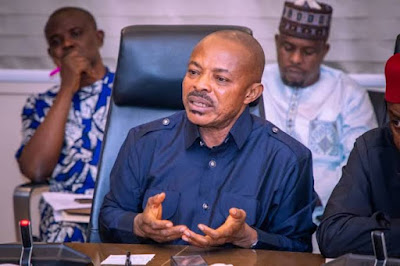NLC Suspends Planned Protest Over 50% Telecom Tariff Hike After Meeting with Federal Government: A Win for Dialogue or a Temporary Truce?
NLC Suspends Planned Protest Over 50% Telecom Tariff Hike After Meeting with Federal Government: A Win for Dialogue or a Temporary Truce?
In a significant development that has averted a potential nationwide showdown, the Nigeria Labour Congress (NLC) has suspended its planned protest against the controversial 50% increase in telecommunication tariffs. The decision, announced after a high-stakes meeting between the labour union and the Federal Government on Monday, underscores the power of dialogue in resolving contentious issues. However, the suspension has also sparked debates about whether this is a genuine resolution or merely a temporary pause in the ongoing battle between labour and the government over economic policies.
The Spark: A 50% Tariff Hike That Ignited Outrage
The controversy began when telecommunication companies announced a 50% increase in tariffs, citing rising operational costs and the need to maintain service quality. For millions of Nigerians already grappling with skyrocketing inflation, unemployment, and a cost-of-living crisis, the hike was the last straw. The NLC, representing the interests of workers and the broader populace, swiftly condemned the move, labeling it as exploitative and insensitive to the plight of ordinary citizens.
“This tariff increase is a direct attack on the already strained pockets of Nigerians,” said NLC President Joe Ajaero in a fiery statement. “We cannot stand by and watch while the people are burdened with yet another unjustifiable expense.”
The Planned Protest: A Nation on the Brink
In response to the tariff hike, the NLC had mobilized its members and allies for a nationwide protest, scheduled to take place later this week. The protest was expected to draw thousands of participants, including workers, students, and civil society organizations, all united in their demand for the reversal of the tariff increase.
The announcement of the protest sent shockwaves through the government and the private sector, with fears of widespread disruption to economic activities and public services. Telecommunication companies, in particular, were on edge, as the protest threatened to escalate into a broader boycott of their services.
The Turning Point: A High-Stakes Meeting
The suspension of the protest followed a closed-door meeting between the NLC leadership and representatives of the Federal Government. While the details of the discussions have not been fully disclosed, sources indicate that the government offered assurances to address the concerns raised by the labour union.
Key points of discussion reportedly included the need for a comprehensive review of the tariff hike, measures to cushion the impact on low-income earners, and broader reforms to address the rising cost of living. The NLC, in turn, agreed to suspend the protest to allow for further negotiations and the implementation of agreed-upon measures.
Relief, Skepticism, and Calls for Accountability
The suspension of the protest has elicited mixed reactions from the public. While many have welcomed the decision as a step towards peaceful resolution, others remain skeptical about the government’s commitment to addressing the underlying issues.
“We are relieved that the protest has been called off, but we need more than just promises,” said a Lagos-based civil rights activist. “The government must take concrete actions to ensure that the burden on ordinary Nigerians is reduced.”
On social media, the hashtag #NLCProtest has been trending, with users expressing a range of opinions. Some have praised the NLC for its willingness to engage in dialogue, while others have criticized the union for what they see as a premature suspension of the protest.
The suspension of the NLC protest over the telecom tariff hike is a microcosm of the broader challenges facing Nigeria. With inflation at an all-time high, unemployment soaring, and public discontent growing, the government is under increasing pressure to deliver tangible solutions.
The telecom sector, a critical driver of Nigeria’s economy, is also at a crossroads. While companies argue that the tariff hike is necessary to sustain operations and invest in infrastructure, consumers are demanding more affordable and accessible services. Striking a balance between these competing interests will require innovative policies and a commitment to inclusive growth.
As the dust settles on this latest episode, the focus must shift to finding sustainable solutions that address the root causes of the crisis. This includes not only revisiting the telecom tariff hike but also tackling broader issues such as inflation, unemployment, and infrastructure deficits.
For the NLC, the suspension of the protest is a test of its ability to hold the government accountable while maintaining the trust of its members. For the government, it is an opportunity to demonstrate leadership and responsiveness to the needs of the people.
A Temporary Truce or a Lasting Resolution?
The suspension of the NLC protest over the 50% telecom tariff hike marks a pivotal moment in Nigeria’s ongoing struggle for economic justice. While the immediate crisis may have been averted, the underlying issues remain unresolved.
As Nigerians watch closely, the question on everyone’s mind is whether this is a temporary truce or the beginning of a lasting resolution. One thing is clear: the path to a better future lies in dialogue, transparency, and a shared commitment to the common good.




Comments
Post a Comment